- Bernard Preston homepage
- Chickens
- Race to End Waste
Race to end waste
Race to end waste concerns the loss of one-third of the food produced by farmers; and 50 percent of the water.
At the consumer goods global-summit being held in Cape Town in 2016, Tom Gormon reported that 1.3 billion tons of food is lost or wasted every year. You and I played a part, large or small in it.
Below you can see a typical harvest from the greengrocer, destined for the dump; and redirected to our worm-farms.
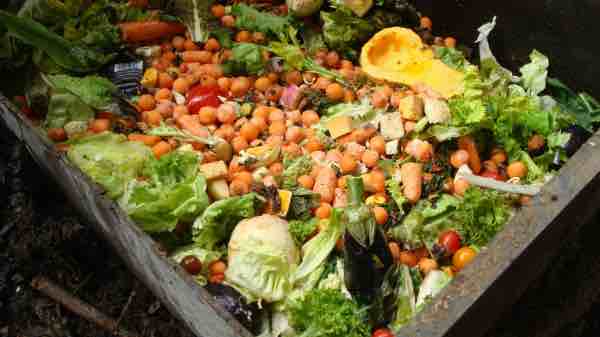
This page was last updated by Bernard Preston on 13th January 2024.
This loss in addition causes 3.3 billion unnecessary tons of greenhouse gases to be pumped into the atmosphere every year; only the USA and China produce more. This is a major contributor to climate change; that means new tornadoes, melting ice-packs and freak weather conditions.
Race to end waste finds it utterly-gross that 1.3 billion tons of food worth US$1 trillion is fudged every year.
A large slice of the problem lies with our demand for perfection. I remember well a BBC-program in which a broccoli farmer bemoaned the fact that a very large part of his crop did not meet EU standards and had to be ploughed back into the soil; the shape and size did not satisfy the requirements of the housewives.
I know which party he voted for in the Brexit-referendum.
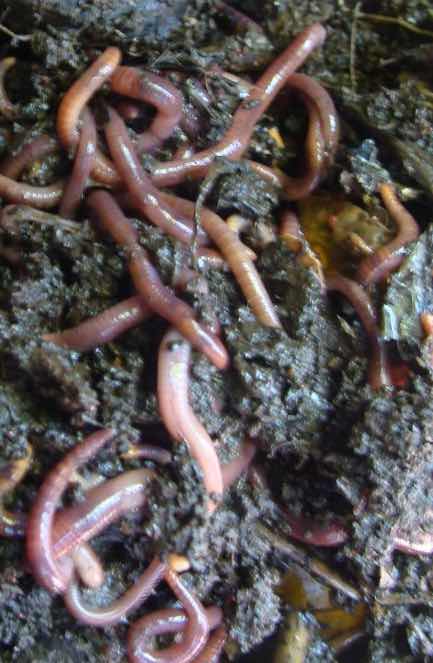
Race to end waste
It's well documented that about a third of the food that any housewife buys ends up being dumped for one reason or another.
Whether it is the authorities rejecting food that doesn't fit the bill, other passing its sell-by date in the supermarket or simply going off in the home, a huge amount that is planted is never actually consumed by humans.
The race to end waste is looking at various measures to improving the global food-supply network.
Another is to make sure that the waste is used in some other profitable way, like in worm farms that will also consume all the kitchen peels and leftover food.
It is interesting how new interests draw you into yet other puzzles. Our worms have voracious appetites, consuming their own weight of food daily. So we've started visiting the local greengrocer for waste vegetables and fruit. Today he insisted that I take a whole box of sweet potatoes; true, underneath I could feel the dampness.
When I got them home I decided on a little experiment. Unfortunately the photo of the whole box went awry, but I chopped out all the rotten-parts and was astonished to find that a full 50 percent was perfectly edible.
The worms got the rotten half and I am not too proud to admit the good fraction went into our easy butternut squash soup; next time I visit I'll take him half a dozen free-range eggs.
It takes me back to the days in Chicago when the young DC in training had to pass the bins of the Jewel supermarket. With two hungry young children there were some tempting wastes there too; perfectly-good grapes that had fallen off the bunch.
It seems gross in retrospect; should we be rethinking the whole problem of waste?
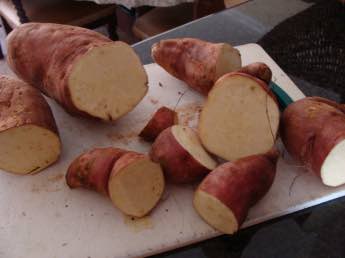
Backyard permaculture
Backyard permaculture certainly is a part of the race to end waste; it is all about creating a sustainable world that will be habitable for our great-grandchildren in a hundred years' time.
We aim to make sure that there is zero-waste from our home. Any stale homemade bread goes to the hens and food that has past its best is devoured by the worms; we throw virtually nothing away.
Interestingly the hens have little interest in commercial bread but they go crazy over the homemade loaf baked with 100-percent wholemeal; they know the difference even if we humans don't.
In fact we even help the local greengrocer to reduce his waste by collecting it for the hens and worms; and sometimes for ourselves. We even wash the plastic-containers and recycle them for him.
We are now looking to participate further by collecting the left-over lunches from the local school and feeding it to our hens and worms; they will clean up virtually anything that one can call food. Interestingly they both turn up their proverbial noses at white bread. They have more discretion than humans.
The beauty of backyard permaculture is that it's a full-cycle. Collecting rainwater and sunshine from the skies and turning it into usable forms in the home and garden is one part.
Avoiding all pesticides and inorganic fertilisers is another part; that means compost heaps and worm-wee for the vegetables.
Obviously we have no control over the supposedly rotten food at supermarkets but by producing as much of our own organic fruit and vegetables as possible, and eggs using backyard permaculture, we are participating in the race to end waste.
The wonder of worm farms
The wonder of worm farms is a vital part of the race to end waste; the
creepy crawlies just love half-rotten fruit and vegetables. They'll even enjoy meat
that you may feel is suspect; and will gorge themselves on a dead bird or mouse.
They will take all your kitchen-waste and turn it into a booster for your plants.
They breed incredibly fast, doubling every month so the surplus worms go to feed the hens; that's backyard permaculture and a fun part of the waste-cycle.
Collecting bags of half-rotten vegetables from the green grocer and left over lunches from the local school may not be quite up your street; so you choose your own part of this huge dilemma. The prospect of food riots will be in the offing otherwise.
It takes me no more than five minutes every day to busy myself with the wonder of worm farms. On top of that once a month I spend perhaps half an hour to dig out the rich humus from the bins; adding it to the compost pile or directly into the garden.
You probably feel this is totally over the top. Rome wasn't built in a day; nor was a backyard permaculture home. You may want to start with a row of green beans or a Popeye spinach-patch. Then the remains go to starting a compost heap.
Eventually you'll be thinking about a model for collecting rainwater and building worm farms in your participation in the prevention of waste.
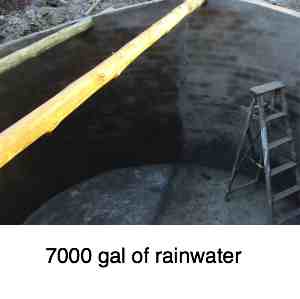
In many municipalities over half the water is lost from aging-pipes. Harvesting and using the rain in our homes and gardens is a significant part of ending waste.
The issues of the future will concern food and water. Let each of us do our own small part. Sustainable America is a large project of this nature.
Bread
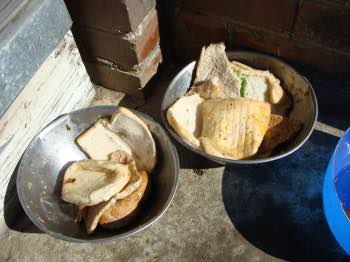
A huge amount of bread is discarded every day throughout the world; the vast majority is highly processed and neither dogs, chickens nor worms are much interested in eating it unless desperately hungry.
But any surplus homemade artisan bread that we have not eaten is devoured ravenously by our hens. Being made with 100% wholemeal-flour it's particularly rich in betaine which is often added to chicken feed.
Betaine is important for us too, providing a necessary step in the breakdown of toxic homocysteine in the body.
Bernard Preston
Bernard Preston and his wife Helen live in an annex attached to their daughter's home; they are privileged to have their grandchildren around them for much of the time. Their worm-farms are one small part of the race to end waste.
Creating a sustainable world, an inhabitable-place for them and their children has become a subject of passionate debate. Never will they be able to turn around and say we destroyed their future with our reckless and unsustainable abuse of the environment; we are all headlong in the race to end waste in our world. We each must play our own part, albeit small.
He is also a writer with six published volumes; and is busy with the seventh. You can support this site, if you've enjoyed this page by purchasing one of his inexpensive eBooks. Find them in the navigation-bar above.
When browsing use right click and "Open Link in New Tab" or you may get a bad gateway signal.
Newsletter
Our newsletter is entitled "create a cyan zone" at your home, preserving both yourself and Mother Earth for future generations; and your family too, of course. We promise not to spam you with daily emails promoting various products. You may get an occasional nudge to buy one of my books.
Here are the back issues.
- Investing in long-term health
- Diseases from plastic exposure
- Intensive lifestyle management for obesity has limited value
- A world largely devoid of Parkinson's Disease
- The impact of friendly bacteria in the tum on the prevention of cancer
- There's a hole in the bucket
- Everyone is talking about weight loss drugs
- Pull the sweet tooth
- If you suffer from heartburn plant a susu
- Refined maize meal and stunting
- Should agriculture and industry get priority for water and electricity?
- Nature is calling
- Mill your own flour
- Bake your own sourdough bread
- Microplastics from our water
- Alternative types of water storage
- Wear your clothes out
- Comfort foods
- Create a bee-friendly environment
- Go to bed slightly hungry
- Keep bees
- Blue zone folk are religious
- Reduce plastic waste
- Family is important
- What can go in compost?
- Grow broad beans for longevity
- Harvest and store sunshine
- Blue zone exercise
- Harvest and store your rainwater
- Create a cyan zone at your home
Did you find this page interesting? How about forwarding it to a friend, or book and food junkie? Better still, a social mead tick would help.
- Bernard Preston homepage
- Chickens
- Race to End Waste
Address:
56 Groenekloof Rd,
Hilton, KZN
South Africa
Website:
https://www.bernard-preston.com